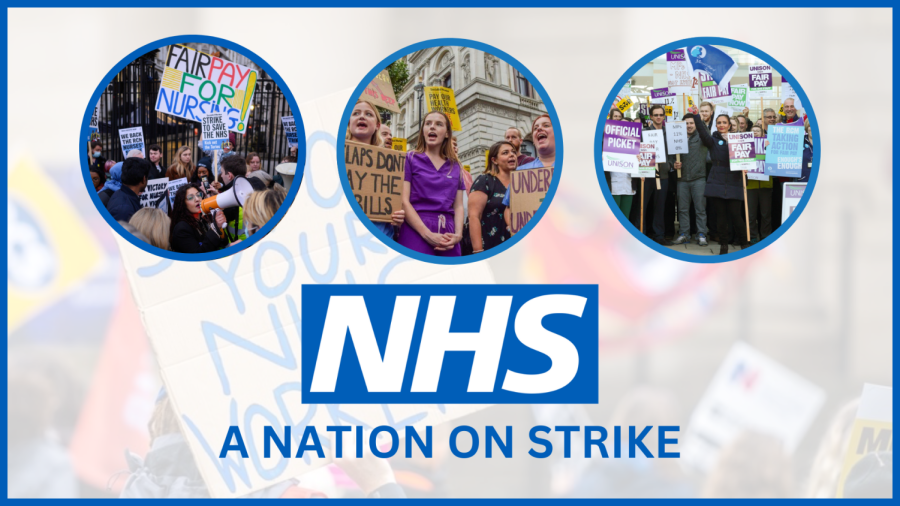A nation on strike: NHS experiences major turmoil with frontline workers
The NHS was founded at the end of World War II in 1948, becoming the second largest single-payer healthcare system on the globe.
The United Kingdom’s public and universal healthcare system, the National Health Service (NHS), is facing a crisis with its employees going on strike because of working conditions and immense pressure from a large influx of patients.
A government-funded organization, the NHS is now experiencing massive shortages of ambulance drivers, nurses, and other essential staff. Rising living costs and inflation adds even more pressure onto these frontline workers.
“Especially with the shortage of nurses and doctors around, I believe that they are very unappreciated, and they should be given more attention as they are going through many pressures right now with the shortages of fellow workers,” said Aaryan Patel (‘25).
Experts have cited that it is normal to see a surge of patients during the winter season, but, coupled with the under-compensation and the extra effort to deliver to a record number of patients, it is understandable that the NHS is overstretched. Over 7 million patients are on the waitlist and unprecedented ambulance waiting-times plague the system.
“The long patient waiting times and lacking emergency service strategies are byproducts of the current system. We have not taken steps to modernize the NHS, and as a result, patients, doctors, and nurses around the county are really struggling,” said NHS Doctor Prashil Koovejee.
Many political and social commentators have questioned the effectiveness of a universal, public healthcare system as it is a heavy burden for the UK government. Although less accessible, the American health system is dominated by the private sector, with supply and demand fulfilled by insurance companies.
“I heard really interesting arguments on all sides. Here in the United States, the public historically has supported that [a capitalistic] system. We are a much bigger country than a lot of European countries that have those single-care systems,” said AP World History Teacher Delise Anderson.
Medical unions and the government are currently in negotiation with regards to pay and funding, but labor unions are still seeing little progress in meeting their demands. However, people around the UK hope that the NHS resolves its internal dilemma for the sake of patients and the care that they deserve.
“At the end of the day, as a doctor, I prioritize my patients. They are why I go to work every day. They are why I do what I do. We need change and change will eventually arrive, one way or another,” said Koovejee.
Your donation will support the student journalists in the AVJournalism program. Your contribution will allow us to purchase equipment and cover our annual website hosting costs.

